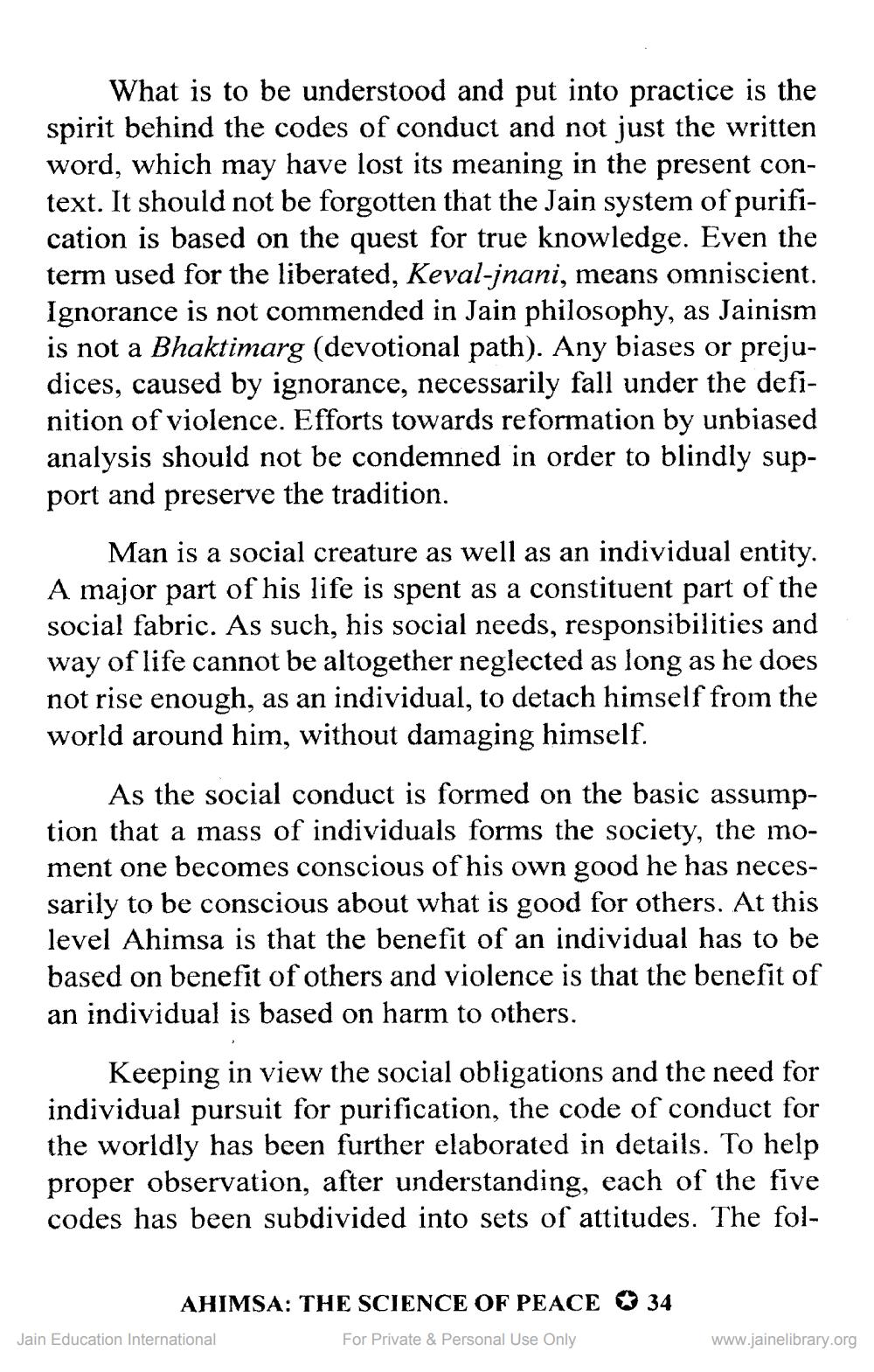________________
What is to be understood and put into practice is the spirit behind the codes of conduct and not just the written word, which may have lost its meaning in the present context. It should not be forgotten that the Jain system of purification is based on the quest for true knowledge. Even the term used for the liberated, Keval-jnani, means omniscient. Ignorance is not commended in Jain philosophy, as Jainism is not a Bhaktimarg (devotional path). Any biases or prejudices, caused by ignorance, necessarily fall under the definition of violence. Efforts towards reformation by unbiased analysis should not be condemned in order to blindly support and preserve the tradition.
Man is a social creature as well as an individual entity. A major part of his life is spent as a constituent part of the social fabric. As such, his social needs, responsibilities and way of life cannot be altogether neglected as long as he does not rise enough, as an individual, to detach himself from the world around him, without damaging himself.
As the social conduct is formed on the basic assumption that a mass of individuals forms the society, the moment one becomes conscious of his own good he has necessarily to be conscious about what is good for others. At this level Ahimsa is that the benefit of an individual has to be based on benefit of others and violence is that the benefit of an individual is based on harm to others.
Keeping in view the social obligations and the need for individual pursuit for purification, the code of conduct for the worldly has been further elaborated in details. To help proper observation, after understanding, each of the five codes has been subdivided into sets of attitudes. The fol
AHIMSA: THE SCIENCE OF PEACE 34 For Private & Personal Use Only
Jain Education International
www.jainelibrary.org




